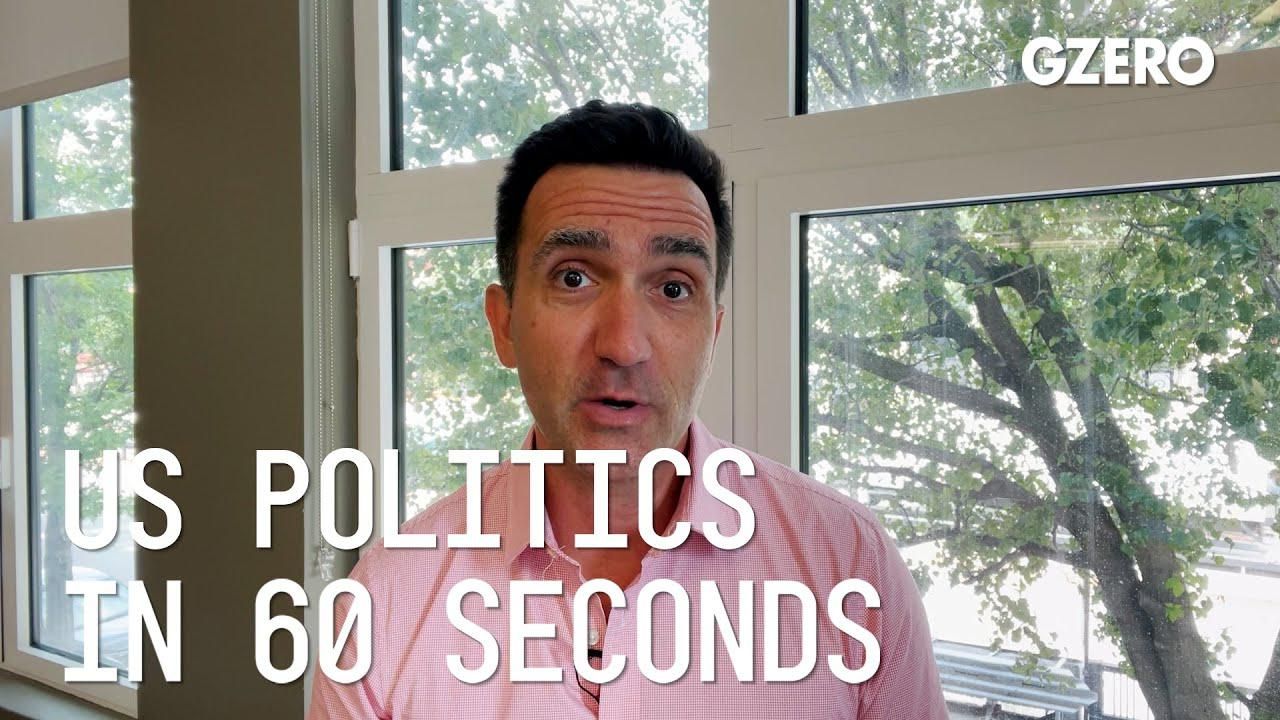US Politics In 60 Seconds
Democrats need to be united to pass $3.5 trillion budget plan

Democrats Need to be United to Pass $3.5 Trillion Budget Plan | US Politics In :60 | GZERO Media

Get insights on the latest news in US politics from Jon Lieber, head of Eurasia Group's coverage of political and policy developments in Washington:
What are the details of the Democrats' proposed $3.5 trillion budget blueprint?
Well, the Democrats this week in the Senate Budget Committee agreed to move forward with the plan to spend $3.5 trillion spread out over about 10 years on a huge portion of President Biden's Build Back Better Plan. This comes on top of a bipartisan agreement, at least in principle, on another $600 billion in physical infrastructure, which is roads, bridges, tunnels, repair, broadband deployment and a whole bunch of other physical infrastructure spending that Republicans and Democrats agree they want to do but aren't clear on how they want to pay for. But on the $3.5 trillion in spending, this is a lot of new social services, it's extending a number of tax subsidies that are going to low-income families and families with kids as part of the American Rescue Plan, which was the Biden stimulus bill that passed earlier in the year. It also includes money for two years of community college, universal preschool, and expands Medicare to cover things like dental benefits and other things that Medicare currently doesn't pay for.
So, this is a really big, ambitious plan. Democrats are excited about it because they think it's going to reshape, eliminate poverty for millions of Americans and reshape the role of the federal government and a lot of people's lives. However, the road to get there is long and challenging. And this next, in this part of the process is just one baby step forward. The next part of the process will be to pass a budget. And the budget process requires only 50 votes in the Senate and the simple majority in the House. But with Democrats slim margins in both, they can't really afford to lose even a single member. So, Democrats have to be totally unified to get this thing through. They can't expect a lot of support from Republicans. And the tension in the party is between progressives who want to spend a lot of money, Senator Bernie Sanders said he was looking to do over $6 trillion, and more moderate members, which is a sizable but silent group led by the very vocal senator from West Virginia, Joe Manchin, who says, this whole thing has to be paid for, there can be no deficit financing. Which means the Democrats can really only afford to spend the money they can raise. And while Biden has put forward $3.6 trillion in tax increases, a lot of those tax increases are politically untenable. And most analysts see there's a realistic range of about one to two trillion dollars in tax increases that are possible. If you combine that with some budget gimmicks and some fake spending cuts that have been floated in the bipartisan framework, plus, you give yourself a longer time frame for how you count the revenues that will finance some of the short-term spending, you can probably get there. But the Senate and the House are probably months away from resolution of this process. And the challenging part right now is going to be keeping everybody on board until the very end.
Somewhere in the Donbas region, Ukrainian soldier Artem Bondarenko says he hasn’t slept through the night in months as he defends Eastern Ukraine.
In the latest episode of Vladimir Putin and Xi Jinping's hit wellness podcast This Authoritarian Life, we learn how positive communication patterns can break negative cycles in our relationships -- especially our relationships with Iran, Syria, Venezuela, and Cuba. #PUPPETREGIME
Israel indirectly warned Lebanon that it would strike its northern neighbor hard if the Iran-backed militia group Hezbollah gets involved in any future US-Iran conflict, two Lebanese officials told Reuters.